By Robert St. Martin
Los Angeles, CA (The Hollywood Times) 7/14/23 – Outfest chose to place D. Smith’s Kokomo City as the Documentary Centerpiece of this year’s LGBTQ+ Film Festival and appropriately so. It is certainly one of the most original documentaries of its kind and beautifully shot in black and white with elegant camerawork. Kokomo City is organized around interviews with four black trans women – New York’s Daniella Carter and Dominique Silver, along with Atlanta’s Koko Da Doll and Liyah Mitchell – which are interpreted with re-enactments, animations and other visual materials. Smith also includes interviews with men who are attracted to trans women. The four trans women see theirs as sex work for survival. Smith was a successful music producer in the 2000s, working with the likes of André 3000, Katy Perry, CeeLo Green, and Lil’ Wayne and winning two Grammy nominations in the process. Then she transitioned and the work stopped.
 Kokomo City is D. Smith’s filmmaking debut and its rhythm is suffused with the musical sensibility of a songwriter. The film opens with Randy Crawford’s “Street Life,” the perfect choice for a film about sex workers. The opening anecdote related by Liyah, from Decantur, Georgia, is a brilliant but paradoxical introduction to the danger of sex work for black trans women. Liyah explains how she once grabbed a client’s gun and tried to shoot him only to find it wasn’t loaded, tumbled down the stairs in a knockdown struggle, then rescheduled the date for the next night after a friendly explanation cleared everything up. A potentially tragic incident ends up as a farce, as “Street Life” plays in the background.
Kokomo City is D. Smith’s filmmaking debut and its rhythm is suffused with the musical sensibility of a songwriter. The film opens with Randy Crawford’s “Street Life,” the perfect choice for a film about sex workers. The opening anecdote related by Liyah, from Decantur, Georgia, is a brilliant but paradoxical introduction to the danger of sex work for black trans women. Liyah explains how she once grabbed a client’s gun and tried to shoot him only to find it wasn’t loaded, tumbled down the stairs in a knockdown struggle, then rescheduled the date for the next night after a friendly explanation cleared everything up. A potentially tragic incident ends up as a farce, as “Street Life” plays in the background.
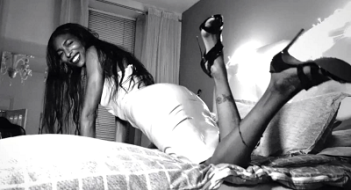 Each of the four primary interview subjects comes off as an individual, but because of the way Smith cuts their stories together and combines them with other materials this film often feels more like a collage or mood piece than a simple collection of interviews. There is much wisdom shared. Daniella, from Queens, sees herself as truly a woman and talks about the men who prefer trans black women: “After sex, these guys want to act on their masculinity because they feel that their masculinity is threatened. There’s a whole stereotype that you’re gay if you sleep with a trans woman just because we have male genitals. But a lot of us are way more woman than a lot of cis women.” She even contemplates vaginal surgery to become a real woman, because she would be accepted as normal in society.
Each of the four primary interview subjects comes off as an individual, but because of the way Smith cuts their stories together and combines them with other materials this film often feels more like a collage or mood piece than a simple collection of interviews. There is much wisdom shared. Daniella, from Queens, sees herself as truly a woman and talks about the men who prefer trans black women: “After sex, these guys want to act on their masculinity because they feel that their masculinity is threatened. There’s a whole stereotype that you’re gay if you sleep with a trans woman just because we have male genitals. But a lot of us are way more woman than a lot of cis women.” She even contemplates vaginal surgery to become a real woman, because she would be accepted as normal in society.
Dominique Silver provides an amazing riff about what it takes to be a trans woman: “What we need to do as trade-ies. We be broken down, but we need to stand out. We are good at being broken down. But before people see us, we have a great way of making ourselves stand out. We got to be the bitch in the room with 28 inches. We got to be the biggest bitch with the biggest boobs, the biggest body, you know. But are you really at peace with yourself? The best of me is when I am seen as a survivalist.”
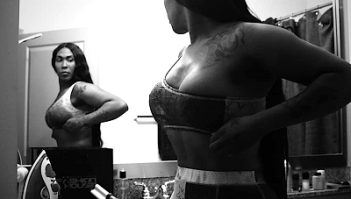 On the other hand, Koko is far more cynical and her experience of being kicked out of her family home and having to provide for some of her own family members at a very young age has shaped her view of the world. “I’m a top. A lot of guys like to bottom. As a trans woman, you gotta know that most of the clients like a big dick. If you don’t have a big dick, you won’t make no money. They want to see a pretty-ass girl with a big dick. You gotta have titties and a nice body. After I had work done, the price went up.” Later in the film, Koko reveals that, although she was given a high school diploma in George, she never really learned to read or write. “I don’t ever want to be a relationship with a man. I only care about what they can do for me.”
On the other hand, Koko is far more cynical and her experience of being kicked out of her family home and having to provide for some of her own family members at a very young age has shaped her view of the world. “I’m a top. A lot of guys like to bottom. As a trans woman, you gotta know that most of the clients like a big dick. If you don’t have a big dick, you won’t make no money. They want to see a pretty-ass girl with a big dick. You gotta have titties and a nice body. After I had work done, the price went up.” Later in the film, Koko reveals that, although she was given a high school diploma in George, she never really learned to read or write. “I don’t ever want to be a relationship with a man. I only care about what they can do for me.”
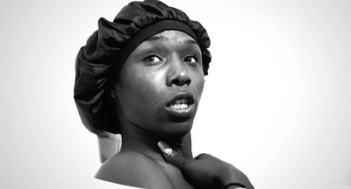 Smith empowers them throughout, giving them space in the edit and with each extreme close-up of a weaponized body part, sometimes in slow motion. These women have revealing, heartbreaking, sometimes hilarious stories to tell about their own lives and the many thoughts they have gathered from dealing with men (in this case, a large number of Black men) who seek to exploit them and sometimes push for secrecy. Meanwhile, Smith also interviews men who desire trans women, and they too speak freely. It is quite refreshing to see the love relationship emerge behind XoTommy and trans woman Rich-Paris in Hollywood, Florida. Lo, a music producer, who considers himself to be a real ladies’ man, admits that he is very attracted to a beautiful black trans woman, with whom he has not had sex but finds himself talking to her daily on the phone.
Smith empowers them throughout, giving them space in the edit and with each extreme close-up of a weaponized body part, sometimes in slow motion. These women have revealing, heartbreaking, sometimes hilarious stories to tell about their own lives and the many thoughts they have gathered from dealing with men (in this case, a large number of Black men) who seek to exploit them and sometimes push for secrecy. Meanwhile, Smith also interviews men who desire trans women, and they too speak freely. It is quite refreshing to see the love relationship emerge behind XoTommy and trans woman Rich-Paris in Hollywood, Florida. Lo, a music producer, who considers himself to be a real ladies’ man, admits that he is very attracted to a beautiful black trans woman, with whom he has not had sex but finds himself talking to her daily on the phone.
Smith, a two-time Grammy-nominated songwriter and producer, draws on a deep well of musical knowledge to score her film with as much artistry as she gives its cinematography. Some of the tracks in the film are Smith’s own, like “Sugar Daddy,” which she wrote with Stacy Barthe. The film takes its name from the blues song “Sissy Man Blues” by Kokomo Arnold, with these lyrics: “I woke up this morning with my pork grinding business in my hand / Lord if you can’t send me no woman please send me some sissy man.” The fluidity of voices and music make this documentary a rich tapestry of sound that accompanies the amazing camerawork.
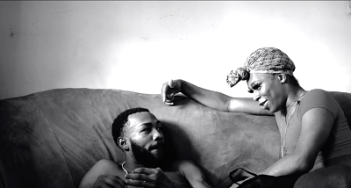 Perhaps the most philosophical of the four narrators is Dominique Silver who tries to explain the larger social context, saying how bad it is “that we normalize letting grown men take advantage of our bodies – be we cis women or trans women or whatever. This is survival work. This is risky shit. That man is just there to escape his reality. And that reality is 10 times better than the one he’s giving you.” She goes on to explain: “We have normalized being degraded, being devalued. For most us, a lack of agency, a lack of resource. The only resource we had was the man who fetishized us to get us to the table. I use my body unfortunately. And you use your brain.”
Perhaps the most philosophical of the four narrators is Dominique Silver who tries to explain the larger social context, saying how bad it is “that we normalize letting grown men take advantage of our bodies – be we cis women or trans women or whatever. This is survival work. This is risky shit. That man is just there to escape his reality. And that reality is 10 times better than the one he’s giving you.” She goes on to explain: “We have normalized being degraded, being devalued. For most us, a lack of agency, a lack of resource. The only resource we had was the man who fetishized us to get us to the table. I use my body unfortunately. And you use your brain.”
Lenox Love, who concedes that he is attracted to all women including trans women, decided to open a club in Atlanta, Georgia, with a “hush night,” where black trans women could meet interested men away from “the stroll” on the street. It is not clear that this is the optimal solution but it was marginally safer as the kind of men, including professional athletes, would show up as customers.
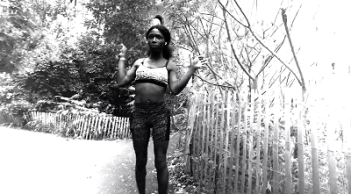 Once again, Dominique provides the large social context that suggests the long-term impact of Black slavery in this country: “When I decided to transition to be a black woman instead of a young black man, I had to help my mother process how it feels to lose another black man again. We are always existing around systems of being what we should be for someone else. And that is why black women are so forceful at trying to get their black kids to conform to that.” Ultimately, it is difficult to get successful black women to have an understanding of what “broken black women, not liberated black women” and especially black trans women have to endure.
Once again, Dominique provides the large social context that suggests the long-term impact of Black slavery in this country: “When I decided to transition to be a black woman instead of a young black man, I had to help my mother process how it feels to lose another black man again. We are always existing around systems of being what we should be for someone else. And that is why black women are so forceful at trying to get their black kids to conform to that.” Ultimately, it is difficult to get successful black women to have an understanding of what “broken black women, not liberated black women” and especially black trans women have to endure.
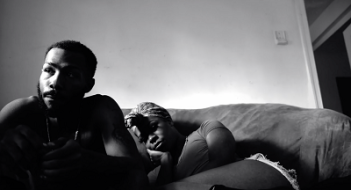 It’s no secret that black trans women are disproportionately victims of violence. Unfortunately, not long after appearing in this documentary, Koko Da Doll was shot and killed in Atlanta in April of this year. Her death is a harsh reminder that although some things may be getting better for trans people, the lives of most trans people are often in danger.
It’s no secret that black trans women are disproportionately victims of violence. Unfortunately, not long after appearing in this documentary, Koko Da Doll was shot and killed in Atlanta in April of this year. Her death is a harsh reminder that although some things may be getting better for trans people, the lives of most trans people are often in danger.
Kokomo City has been picked up for distribution by Magnolia Pictures since its debut at Sundance earlier this year. It will screen at Outfest on Sunday, July 16th, 7:00 PM in the Directors Guild of America, Theater 1. For tickets, go to: www.outfest.org.




